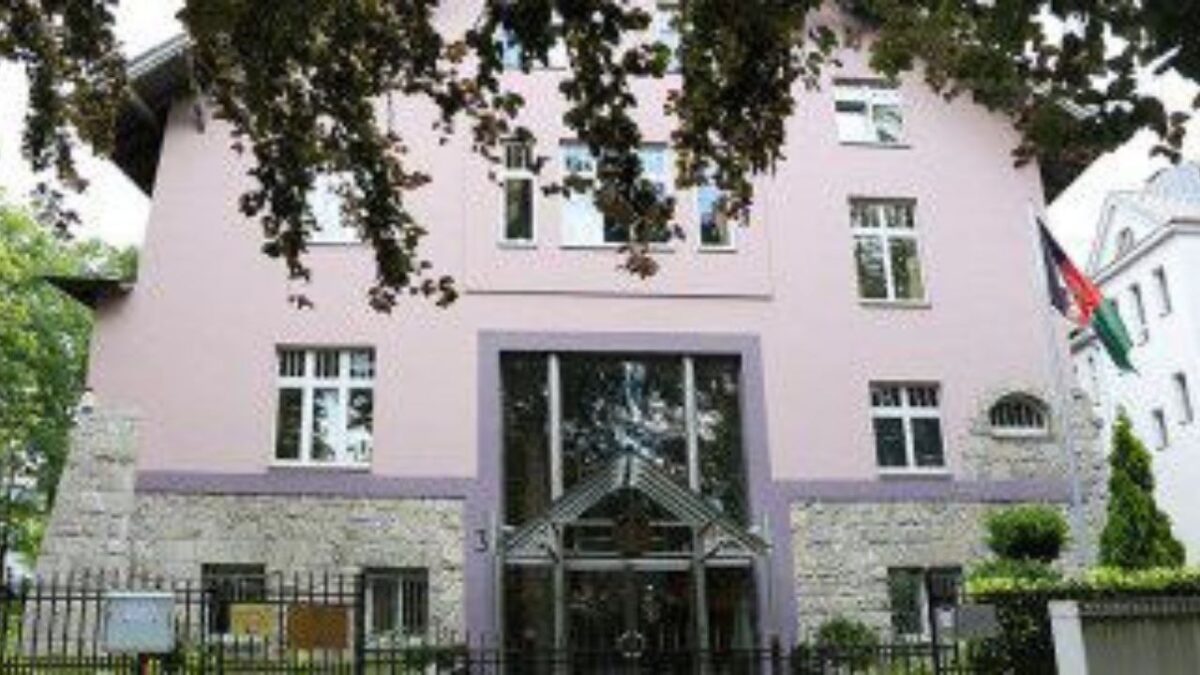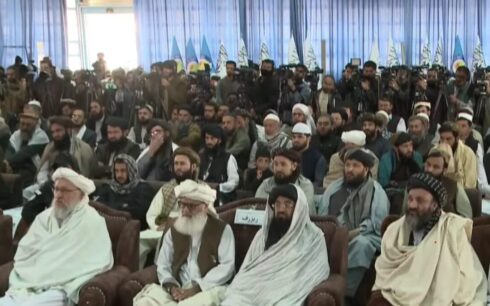A senior Afghan diplomat in Europe, who is also a member of the Afghan Diplomatic and Consular Council, told Amu TV that the German government has informally urged Afghanistan’s Embassy in Berlin to resolve its issues with the Taliban within the next few weeks.
According to the source, Germany is the only country that has formally responded to a letter from the Taliban’s Foreign Ministry. In its response, Germany emphasized the importance of keeping the Bonn Consulate and the Afghan Embassy in Berlin open, in addition to maintaining operations at the Munich Consulate, which the Taliban claims is currently engaging with them.
The source further revealed that Germany is the only country to acknowledge the Taliban’s letter, which questioned the legitimacy of consular services provided by Afghan embassies in Europe, Australia, and Canada that continue to operate under diplomats from the previous republic without engaging with the Taliban.
“The German government has informally requested that the Afghan Embassy in Berlin resolve its issues with the Taliban,” the source said. “Germany is the only country that has responded to the Taliban’s letter, stressing the need to keep both the Bonn Consulate and the Berlin Embassy open, alongside the Munich Consulate.”
The source expressed concern that some countries, including Germany, are attempting to normalize relations with the Taliban under the guise of maintaining diplomatic representations from the former republic. “This approach is a diplomatic contradiction and deeply concerning, as the Taliban’s policies are fundamentally opposed to the principles of the republic,” the source added.
The Afghan Embassy in Germany did not respond to Amu TV’s inquiries on the matter before this report was published.
Human rights activists, however, view any engagement with the Taliban as a disregard for human rights violations, particularly against women, in Afghanistan.
“Any interaction with the Taliban means ignoring the will of the Afghan people and the human rights violations committed by the Taliban,” said Rahila Talash, a human rights activist.
Masouda Kohistani, a member of the Women’s Protest Movement, echoed this sentiment, urging the international community to stand with the Afghan people against the Taliban. “We call on the countries of the world to support the Afghan people in their struggle against the Taliban,” she said.
Some Afghan citizens also voiced their concerns, particularly towards Germany, urging global powers not to compromise the legitimate demands of the Afghan people in political dealings with the Taliban.
“The world should put pressure on the Taliban instead of engaging with them. Any interaction with the Taliban is tantamount to overlooking human rights abuses in Afghanistan. The international community must not ignore the aspirations of the Afghan people,” said a Kabul resident who requested anonymity.
Earlier, the Taliban’s Foreign Ministry issued a statement on August 6, 2023, declaring that only the consular services of five Afghan embassies and consulates were officially recognized by the Taliban.
The statement read: “Five countries in Europe, in coordination with Kabul, are exempt from the above restrictions, and their consular services and documents are accepted like those of other representations. These include the Afghan Consulate General in Munich, the Afghan Embassy in the Netherlands, the Afghan Embassy in Spain, the Afghan Embassy in Bulgaria, and the Afghan Embassy in the Czech Republic.”
However, the source emphasized that the German government has not yet sent any official notice to the Afghan Embassy in Berlin regarding its closure or transfer to the Taliban. The source also noted that France, among other countries, has disregarded the Taliban’s letter.
Three years after the Taliban’s return to power, no country has recognized the political structure established by the group. Many Afghan embassies, including Afghanistan’s seat at the United Nations, continue to be managed by diplomats from the former government.





